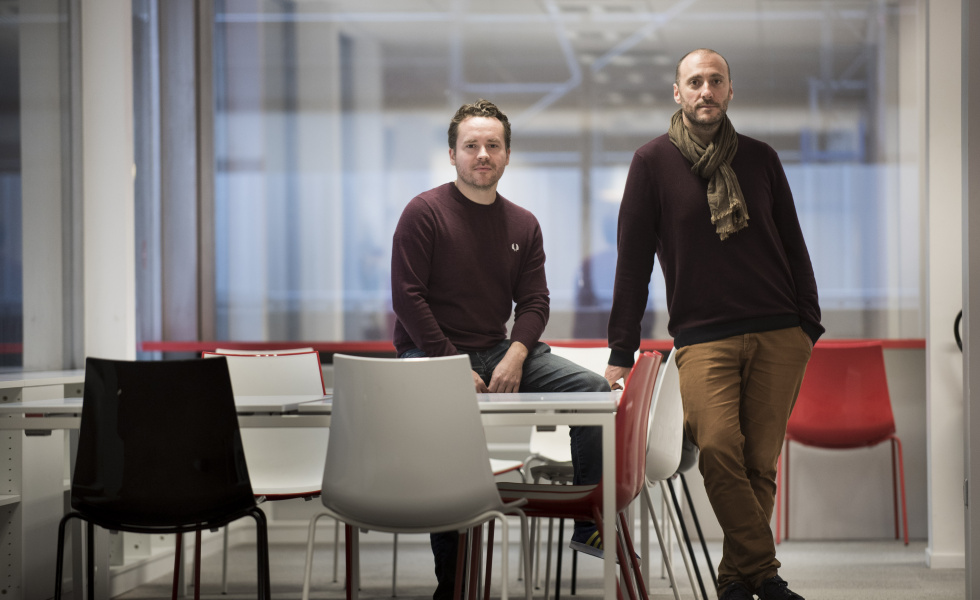“Beyond the idea, your ability to execute is what makes the difference”

Pascal Magnier and Clément Penin, co-directors of Expernova
Why did you choose Montpellier?
We grew up in Montpellier, but we each went – independently – to Paris and abroad for our higher education and first steps along the career path. We decided to come back to Montpellier when creating Expernova in 2008. The goal was to get back to an environment with our family and friends during a somewhat uncertain period, and to take advantage of Montpellier’s innovation circuits. In 2008, we signed two contracts with the Montpellier Laboratory of Computer Science, Robotics, and Microelectronics (LIRMM). That enabled us to consolidate our project and give it a more technological dimension. LIRMM researchers are the ones who presented us to Montpellier BIC. Starting in 2008, we were assisted by one of the incubator’s project managers. In 2009, we set up our offices at the Cap Omega incubator facility.What was the main contribution for your success brought by Montpellier BIC and its teams?
Montpellier BIC enabled us to follow all the steps for creating our project in the correct order. They helped us in all areas, such as for preparing our funding application for Crealia, Bpifrance, and regional authorities (AFT). They also helped us find interns to work with us for six months, funded by Synersud. We enjoyed the incubator environment at Cap Omega, including advice and encounters with other startups. We also benefited from training in several areas, such as law, exports, research tax credit, accounting, standards, English, and even intellectual property. The training courses are all interactive: we can apply what we learn to our projects and companies. This means that we learn while still moving forward on the project. Montpellier BIC support also enabled us to meet investors, notably during “Montpellier Venture Capital” events. When we were working on fundraising, the incubator’s reputation gave us credibility in the eyes of potential investors.What advice would you give to young entrepreneurs who want to start a company?
Go to Montpellier BIC before you get started! You can participate in a wide variety of events, where project leaders are invited to test their ideas and refine their approach. There is no reason to be afraid of talking about your project, as it’s your ability to execute that makes all the difference. Ideas evolve over time. In addition, most successful startups make pivotal decisions – that is, they change directions in a manner that enables them to connect better and faster to the market. Their business models evolve. Talking about your project is a way to confront it with market realities and learn more about your competitors.Another important piece of advice: have at least one other partner with you for the adventure. Two people can tell themselves the truth and support each other. It’s even more critical as you go through an emotional roller-coaster ride, between those moments where you find your idea incredible and others when you are overtaken by doubt. Another reason is that you can split tasks and responsibilities, trusting the other person in his/her field of expertise.
You must realize that good decisions are not always possible, and that things may never be ideal. But you still need to move forward and take responsibility for decisions that might not be perfect, and release your first prototype and convince your first customer before the timer runs out and finances dry up. It’s a race against the clock.
Many people think that a startup’s success is based on having a good idea. Success is 99% based on “how you get there.” You usually don't encounter failure because of a bad idea, but rather because there is no more money to work with. In a niche BtoB market, it is sometimes better to take solid, but modest, steps and generate some profit instead of burning through your capital, creating a lot of buzz, and finding yourself in trouble because there’s no more money in the bank. It’s a sort of naive version of the California startup: a huge market where you need to move fast with vast resources by entering a never-ending race for funding. Montpellier BIC taught us that a startup is a company like any other. It must pay salaries and it must generate revenue and profit. In order to do that, you need to quickly get to the point where you can sell your product. That’s what we did, and we were able to live from our business.
How do you envision the innovative company of tomorrow in Montpellier?
The company of tomorrow will have to deploy each of its functions where it has the most value. First, developing R&D and production in Montpellier – because it is a solid place for that, with many skills and resources. It is close to major markets in Europe and the USA, and clearly less costly than Paris or the United States. Montpellier is an attractive place. We can hire highly qualified people easily, from Paris and elsewhere. There are also investors, notably thanks to Montpellier’s dynamic brand image and quality lifestyle. The city’s “human” size makes it possible to exchange with others and even create cohesion with other startups. But every innovative company really needs to develop the business side of its activity, and then work on marketing as close to the market as possible, particularly for international companies. In addition, Montpellier Métropole helps local companies discover new international markets. We were able to benefit from their support during a business mission to the United States, Morocco, and China. Having a sales office in the United States can be a real advantage by shining the global spotlight on your products, and because that’s where the major international conferences are held. Distance is not an issue. Teams can easily communicate every day via the Internet. The only shortcoming about Montpellier is that higher education in computer science and digital fields is still too limited with respect to needs. We must train our employees ourselves or seek developers and digital engineers elsewhere.Find out more…
There are 0 commentaires on this page
Leave a comment


